He's the only living athlete in three Hall of Fames: Pro Football, College Football and Lacrosse. He qualified for the 1956 Olympics as a decathlete, but declined to participate in order to focus on football.
What happens when one of the best athlete's the world has ever seen turns 78?
A few months back, Jim Brown strolled onto Highland Park Golf Course, roughly 30 miles east of downtown Cleveland. Decked out in a Cleveland Browns trifecta – a polo, slacks and a hat – Brown pulled his driver out of his bag and slung it onto his back. He swayed back and forth, warming up the same muscles he used to become one of the NFL's most dazzling and memorable players in the league's 90 year history.
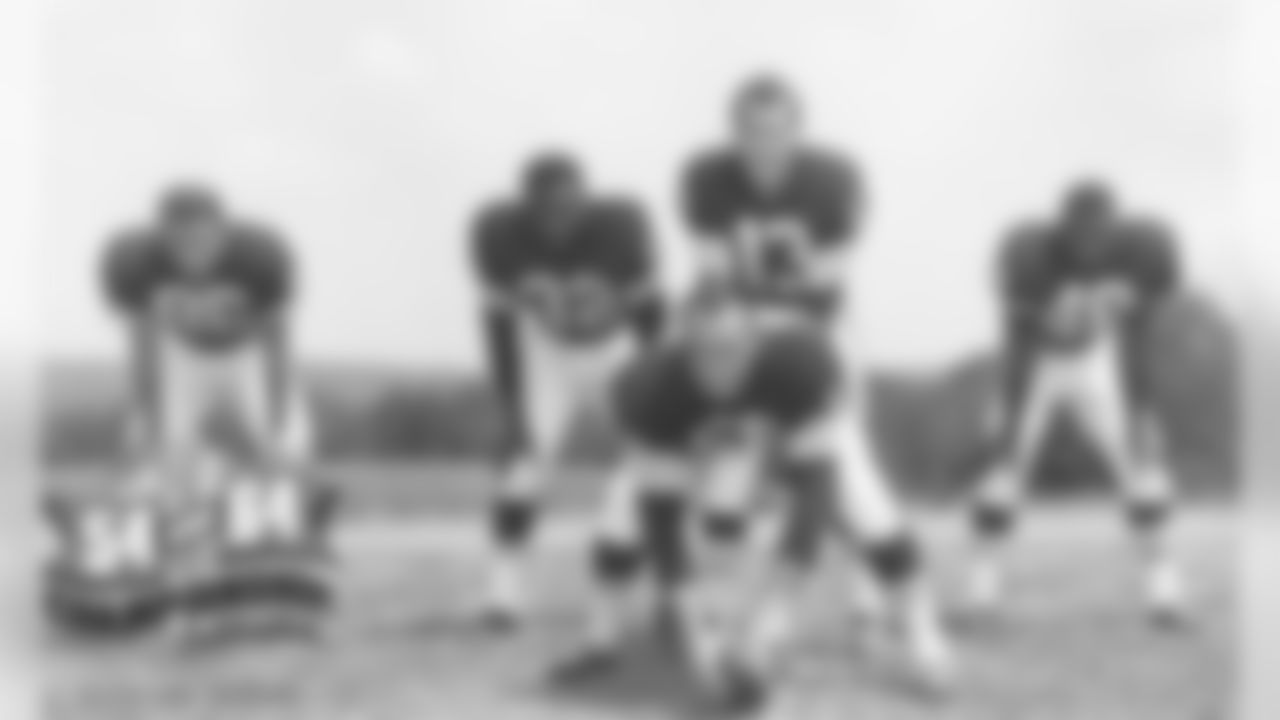
1964 Backfield

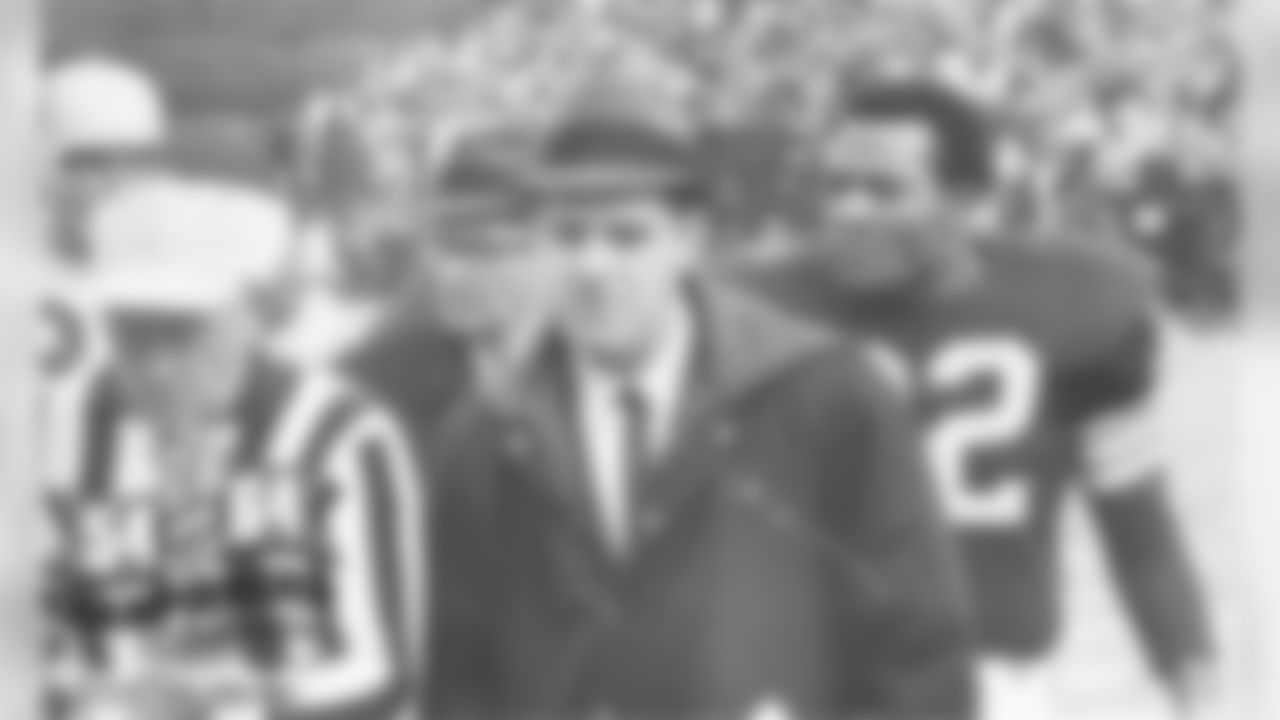
Blanton Collier - Ed Ulinski - Jim Brown

Bobby Mitchell - Jim Brown

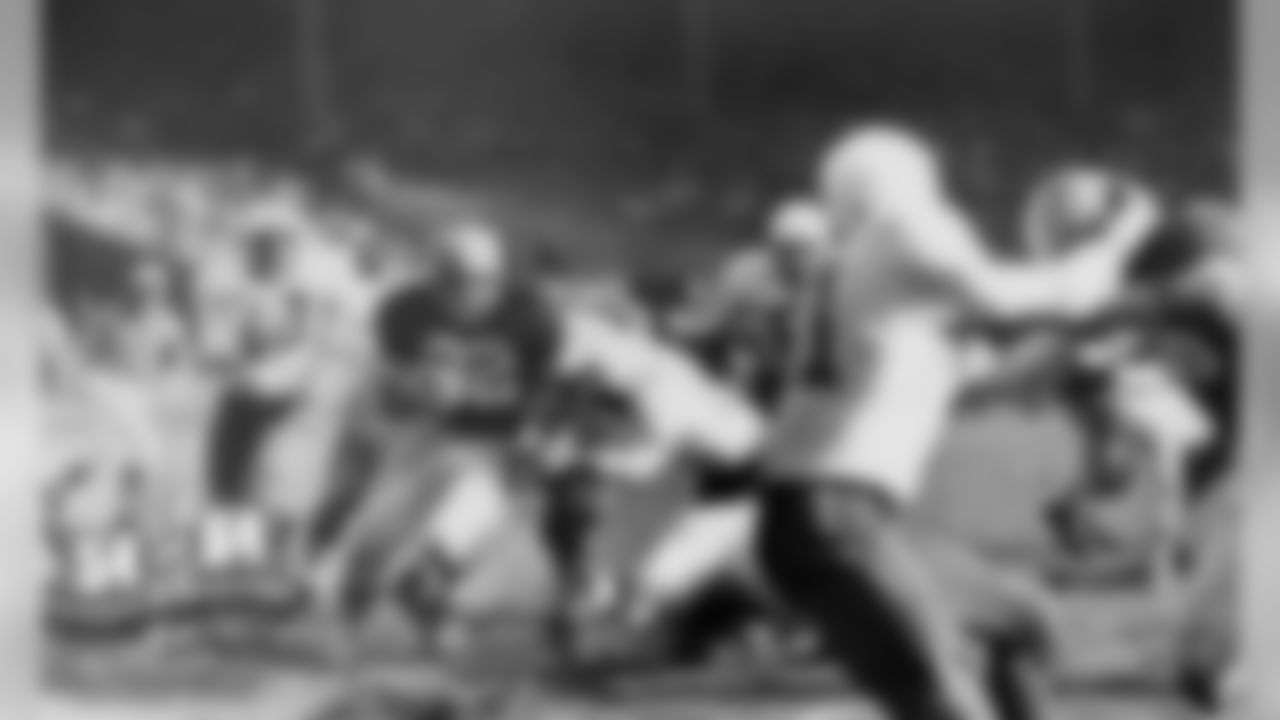

Gene Hickerson - Jim Brown
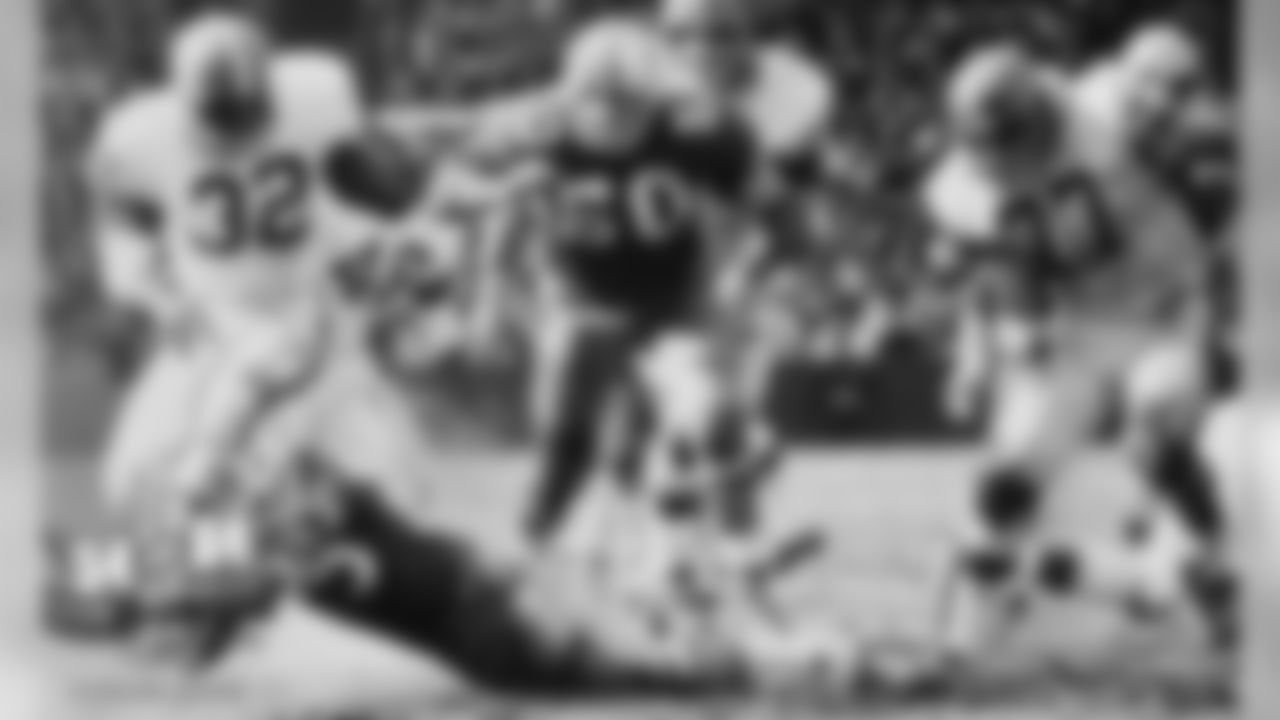
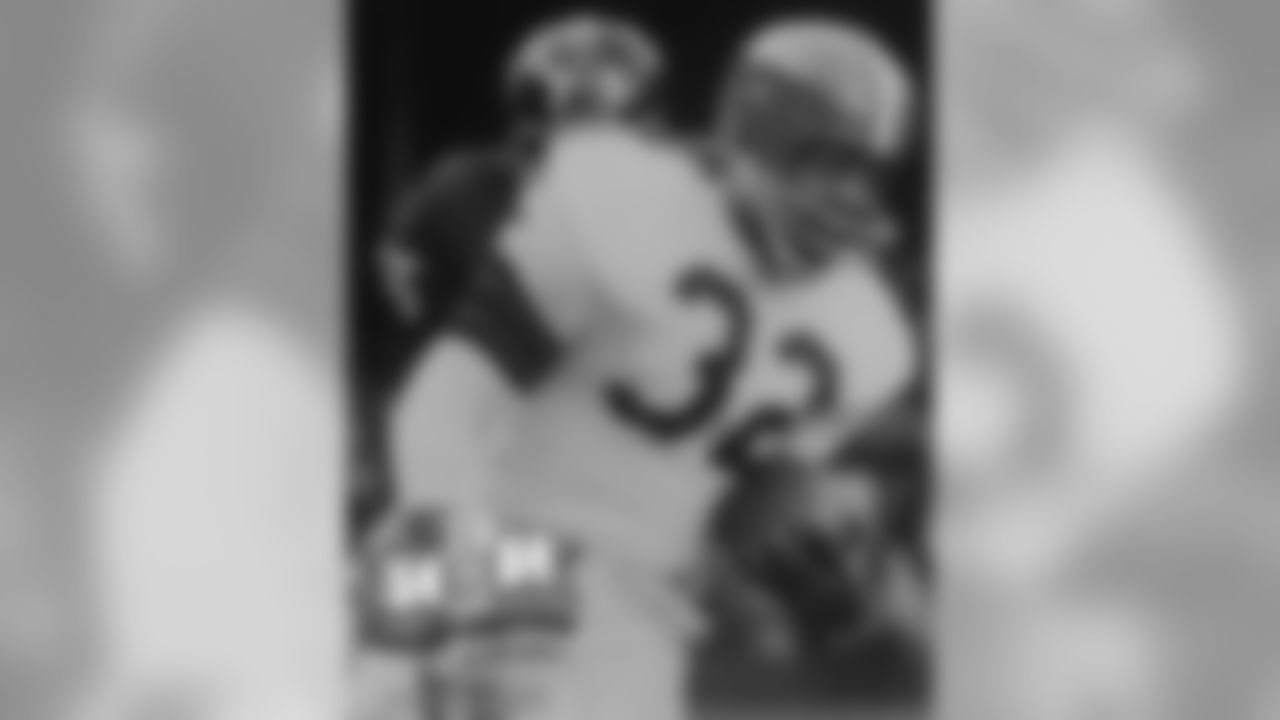

Jim Brown - Ernie Davis Basketball

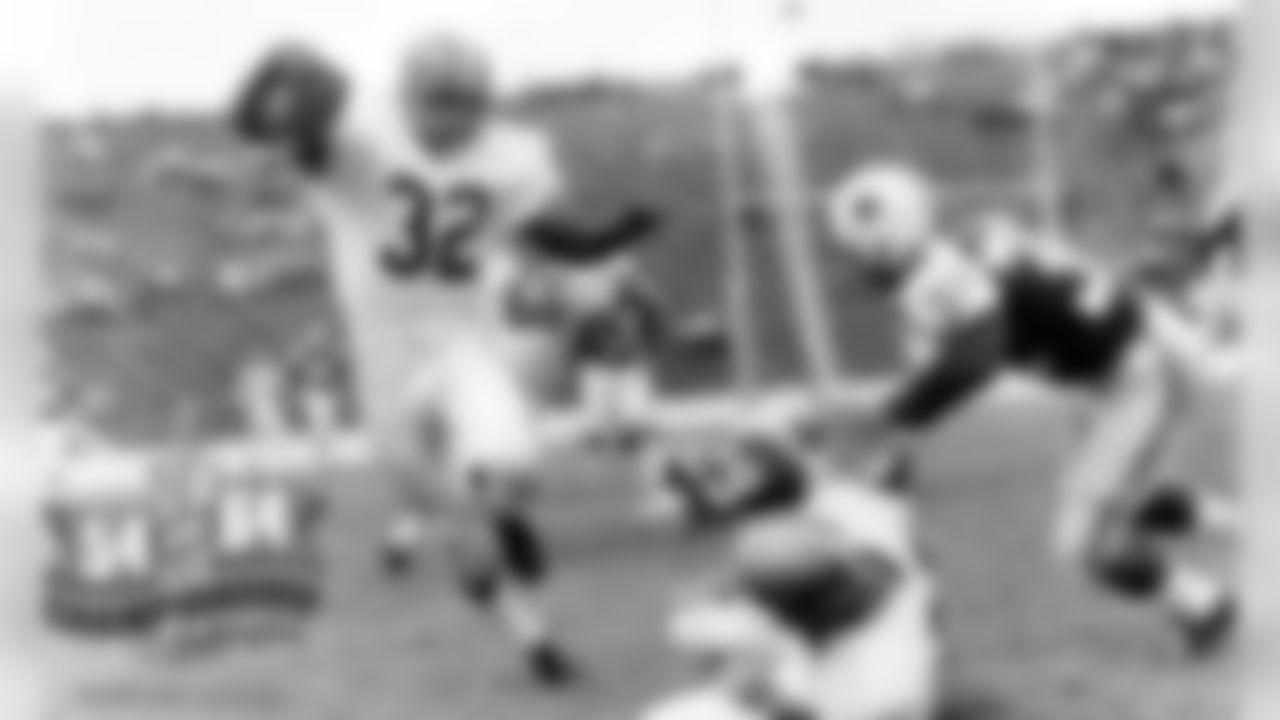
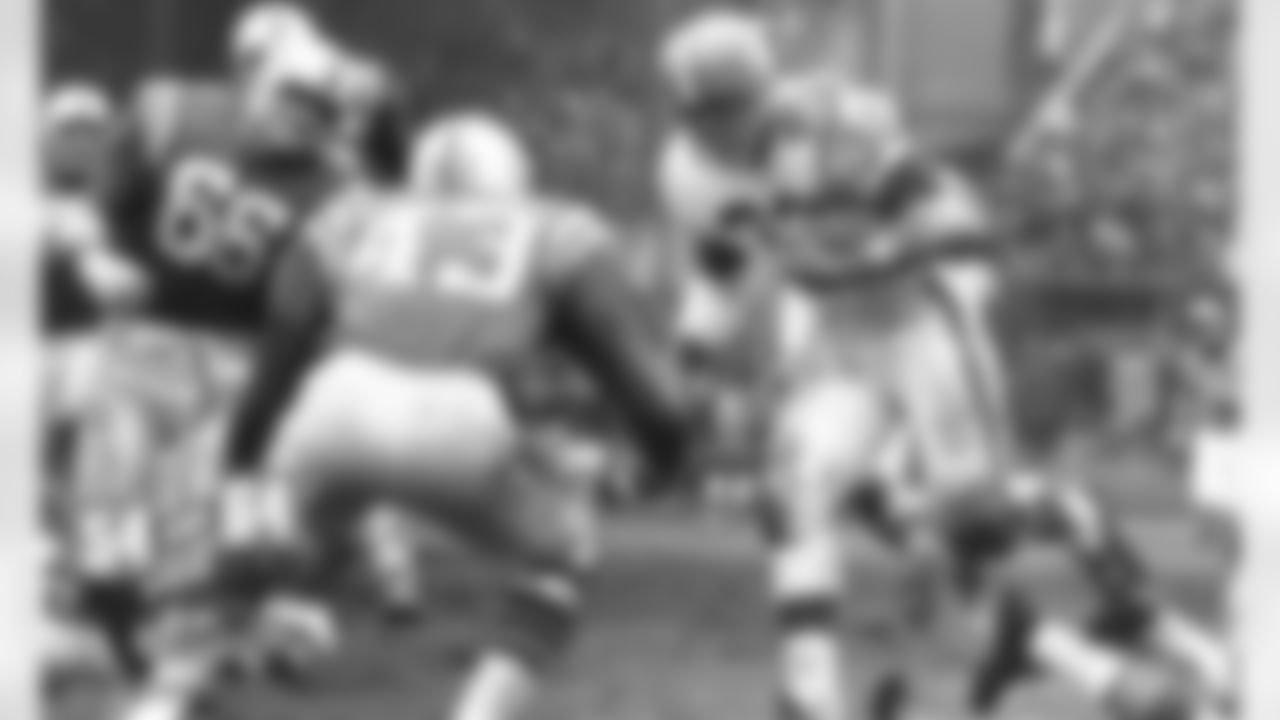


Brown peered around the course, as if he was looking for something. And he was – hunting for competitive prey.
The former Browns running back drove his golf cart and approached two preppy yuppies in their late-20s, Mike Silverstein and Justin Cohen from Solon, Oh. Brown startled the golfing buddies.
"You gentlemen mind if I join you?" Brown said in his raspy tone.
The pair of lifelong Browns fans was stunned yet ecstatic. Silverstein had remembered a conversation he had with friends about who would be in his dream foursome. Brown was automatically one of his choices. Cohen called his dad in disbelief and wondered how many likes a picture of him and Brown would get on Facebook.
As for the stunned part: how could Brown still even play golf? The Pro Football Hall of Famer was so brittle he couldn't even bend down to put his golf ball on a tee. Brown used a rubber driving-range tee attached to a pole and clamp. His steps were slow and ginger.
"Let's make a wager on this round of 18. What do you say?" said Brown. "You guys take your best score on each hole against mine. The loser buys lunch."
Silverstein and Cohen stared at each other. How could they steal money from Jim Brown? How could they embarrass a larger than life idol? The two weren't the world's best golfers, but they played enough to beat a 78-year-old man, regardless if it was Jim Brown. On the other hand, how could they say no in this once-in-a-lifetime situation?
"Sure," Silverstein said, half-excited yet half-nervous.
Seconds after the wager was made, Brown stepped right up to the blue tees and smacked a drive 275 yards down the luscious green fairway. Brown would wait in the middle of the fairway while Silverstein and Cohen hunted for their golf balls near the tree line. Brown would throw a dart of an approach shot near the pin. Silverstein and Cohen would rake sand in the bunkers. Brown routinely would drain 15-foot putts. Sometimes Silverstein and Cohen would pick up the golf ball out of the hole for Brown.
Brown didn't shy away from running his chops, either.
"Do you guys want to take the bet back?" Brown said, grinning.

During the next four hours Brown went into Jim Brown mode -- he torched his competition and laughed while he did it.
Brown, who turned 78 on Feb. 17, shot a score that matched his age. Embellishing in his victory, he insisted on buying hot dogs after the round was over.
Brown drove off in his rental car, towards the airport. He was headed home to California for a few days. His competitive itch had been satisfied.
Jim Brown walks the Cleveland Browns facility hallways, moseying his way into the cafeteria. He waits his turn in line.
Still tall, imposing and as mentally sharp as a tack – he's still a Cleveland Brown.
Nearly 50 years since playing an NFL snap, the allure has not worn off the running back many consider the best NFL player of all-time. Staffers who see him in the hallways are in awe. Players were googly-eyed and grateful when Brown made a lap around the locker room to slap hands with the team following the triumphant Week 2, 26-24 win against the New Orleans Saints. Even the daunting Mike Pettine calls him Mr. Brown like he did when Brown tried to sneak into Pettine's press conference the day after a Week 1 loss to the Steelers.
Brown places two hot dogs, egg salad and asparagus onto one plate and fruit salad on another. He pulls up a chair and eases his way into the seat. He sips on cranberry juice while thumbing through the sports section. Brown scans up and down the newspaper, analyzing the words and pictures from the Browns' last-second loss to the Steelers.
"Pittsburgh represents an attitude and we've shown as a team we can match that attitude," said Brown about the loss. "There is a certain attitude on this team that says we don't give up. In professional football, you have to show heart. We have that now. We really do."
Notice the word 'We' in the above paragraph. Brown cares about this franchise as much as he ever has.
Brown returned to the franchise in May of 2013, to serve as a special advisor to the club. To some, the title seems off-kilter. But it's a wide-ranging label for a man who has infinite wisdom to offer.
He was the NFL's first black superstar. In a time where water fountains and sections in restaurants segregated in the South, Brown was a catalyst in helping bring the country closer together through sports. Brown shattered every rushing record in his brief but extraordinary nine-year career. NFL Films named him the Player of the Millennium in 2000. People from all over the country would spend the weekend in Cleveland to get a chance at seeing Brown in person. Tackling the 6-foot-2, 232-pounder wasn't just a challenge for defenses, it was dangerous.
From 1957-65, Brown could've worn a crown around the city. He still could.
"He was the most popular man in Cleveland," Sue Brown, Jim's ex-wife, told Inside Sports magazine during a 1981 interview. "He could have been mayor, and he was always out on the street where they loved him."

Look into Brown's eyes after you ask him a question and you can almost see into the abyss of his mind. Brown's memories and experiences could be catalogued in an entire library full of books. And that's why Brown is almost as valuable as he was a player to his organization. What he did with his life after football really had, and still has, no end.
Brown appeared in 44 movies, transforming himself into one of the more prominent big screen actors in Hollywood during the late 1960s. He's written columns for the Plain Dealer, and broadcasted NFL games for CBS. Brown has invested in startup businesses, founded organizations to improve education opportunities for urban youth through his Amer-I-Can program and has challenged other famous athletes to get more involved in social issues.
What is the biggest impact Brown has had in his new role with the franchise that helped make him? Just imparting wisdom anywhere he can inside the building.
In a recent conversation with a prominent young player on the Browns' roster, Brown told him there is one key word in life -- intelligence.
"In every situation that you are ever in, you have a choice to make," said Brown with a stern look. "You cannot just think of how that choice will impact you in the moment. Sometimes it takes wrong choices to make right ones. But everything starts with intelligence."
This weekend Brown will reconvene with 24 other members of 1964 Cleveland Browns championship team. There will be laughs. There will be some tears for the fallen members. There will be competitive talk about the Cleveland Browns under Mike Pettine. But for all of those players, and especially for Jim Brown, there will be pride.
"I'm a Cleveland Brown forever and that's something nobody can ever take away from me," said Brown. "Two-hundred years from now, I'll still be a Cleveland Brown. I'm a part of the history. I don't have to explain it, or validate it. It just is."















